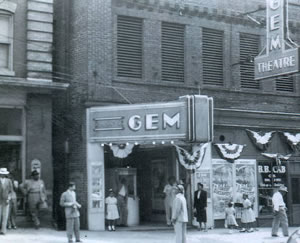Public Venues

Venturing into the public realm could prove uncomfortable or even dangerous during the Jim Crow era. While some African Americans living in urban areas had enjoyed limited freedom to attend their own churches and social clubs before and even during the Civil War, after Emancipation many in Tennessee felt their movements constrained. Strict social separation of the races soon became the norm in Tennessee. There were numerous instances of de facto restrictions placed on the ability of African American Tennesseans even prior to the passage of “Jim Crow” laws. In 1881, Tennessee passed the first such law, which ordered the segregation of railroad cars. While interaction between Tennesseans of all races and ethnicities who worked side by side in workplaces or met in commercial spaces may have been constrained, formal, and even polite, the behavior of some who felt threatened by the new order could be rude and even cruel.
Public gatherings and entertainment venues, where crowds were gathered to hold celebrations, enjoy plays and concerts, or participate in picnics and athletic events, were sometimes marred by clashes or scenes of public humiliation as African Americans were forced into marginal seating areas, refused the opportunity to use the restroom, and otherwise restricted at times that should have been pleasurable. Soon, concerts began to be held in places other than acoustically superior concert halls, private parks and auditoriums were built by wealthy African Americans, and entertainment companies created separate entrances or even separate movie theaters for African American patrons. While music lovers mixed at times in night clubs or after hours venues in African American entertainment districts in Tennessee’s largest cities, by the 1960s it would be the youthful audiences eager for the liberating energy and mixed-race ensembles of Rock-n-Roll music who would be among the first attendees at new integrated facilities like Nashville’s Municipal Auditorium.